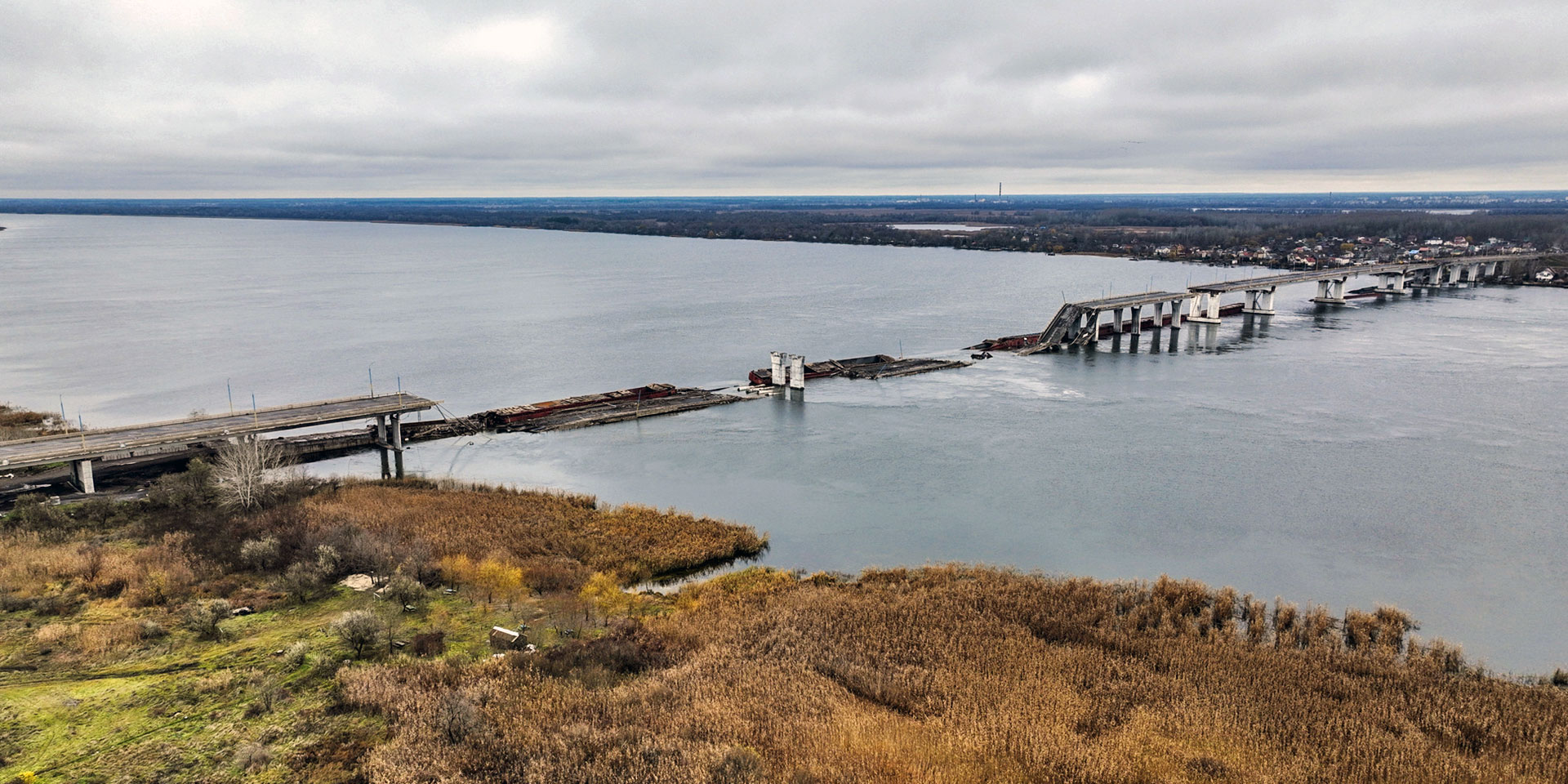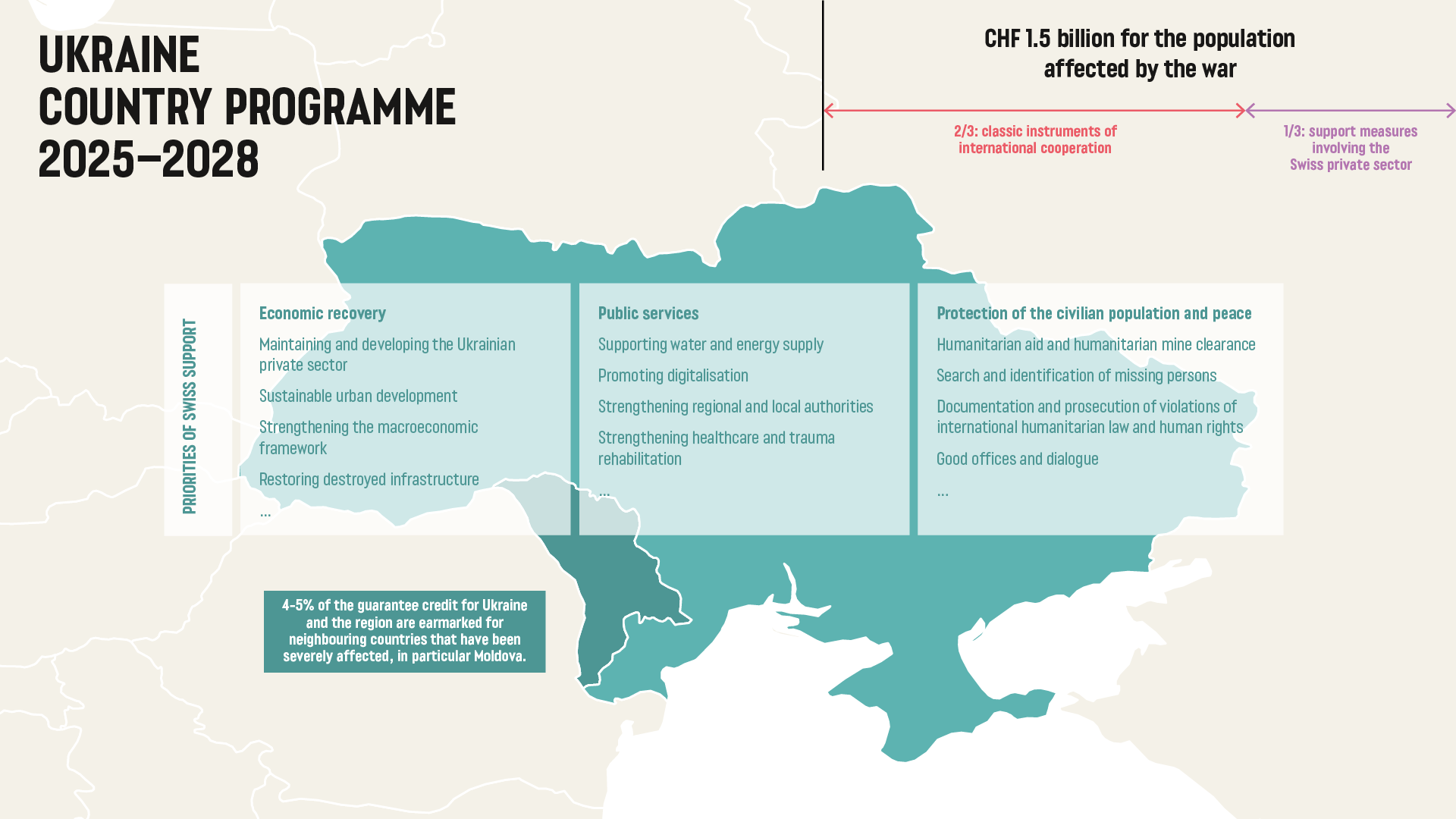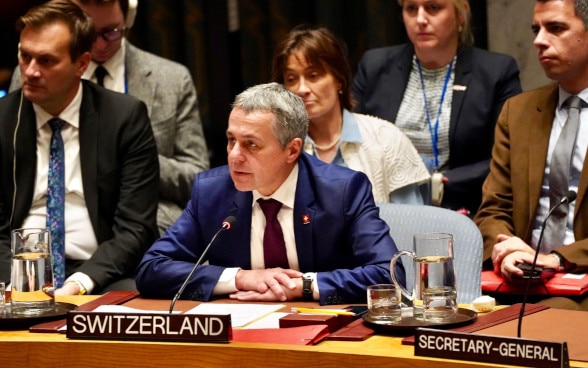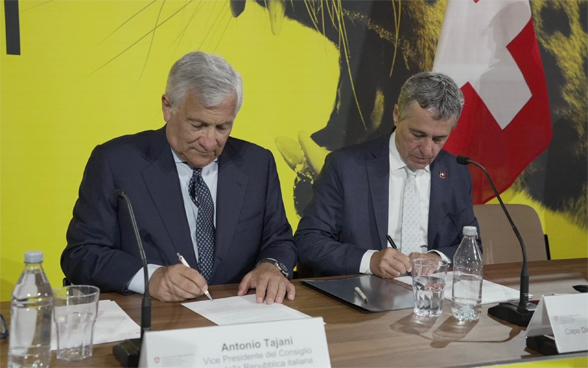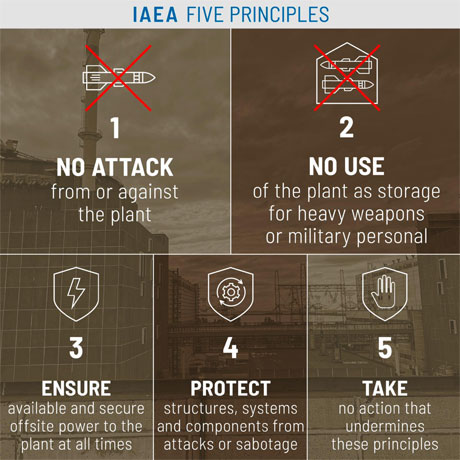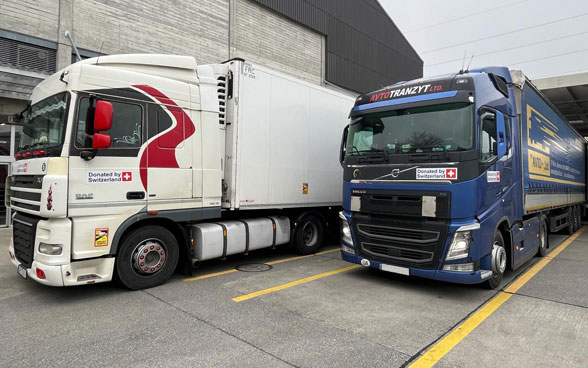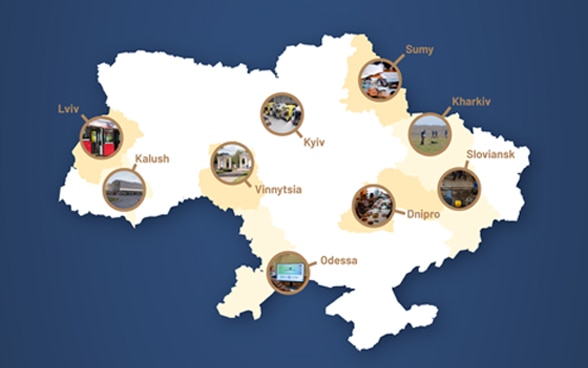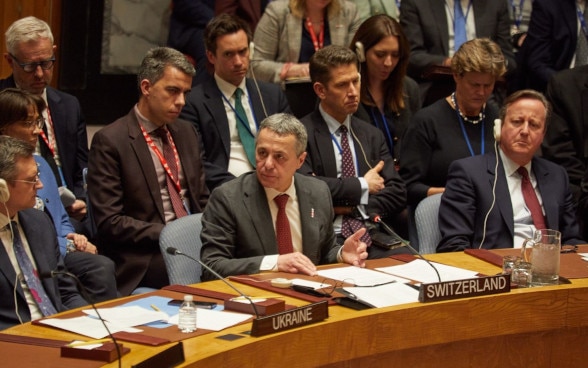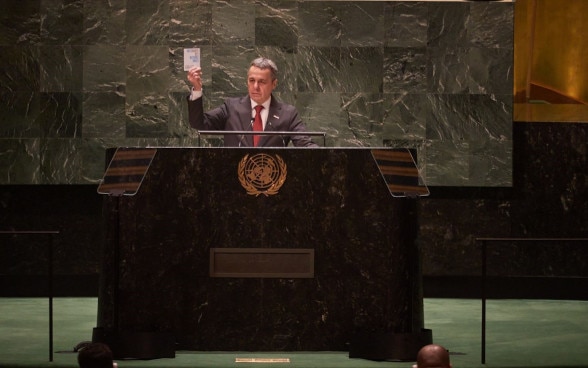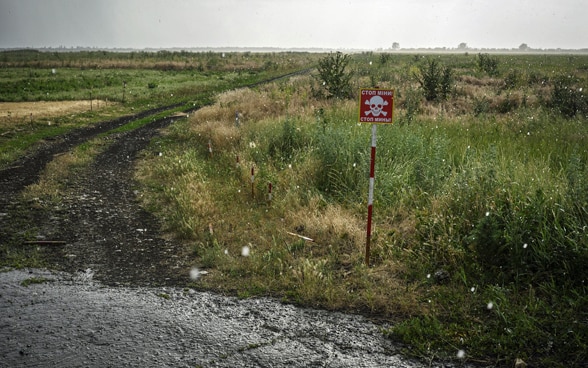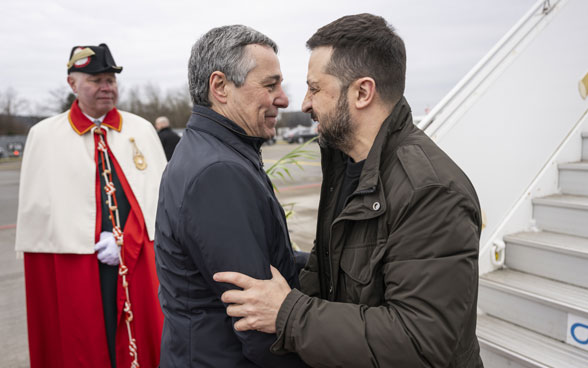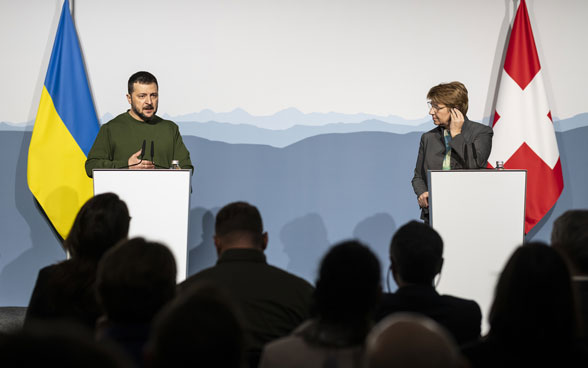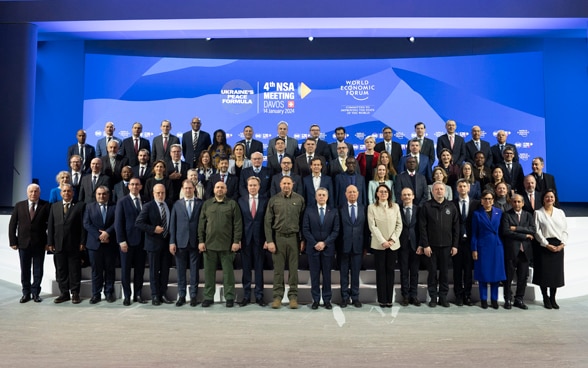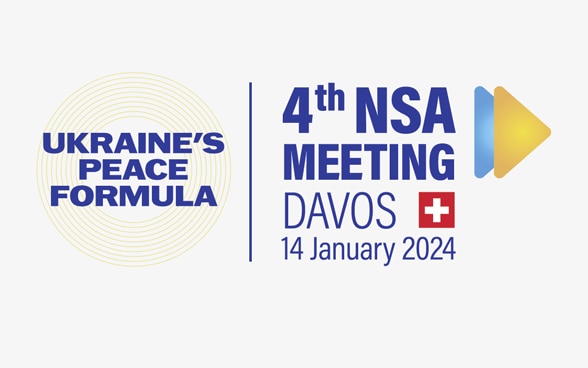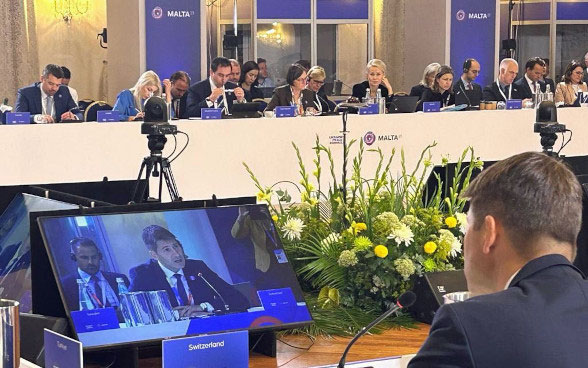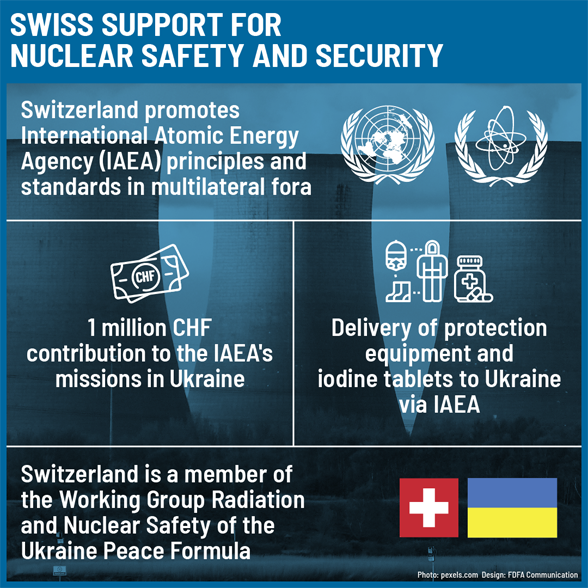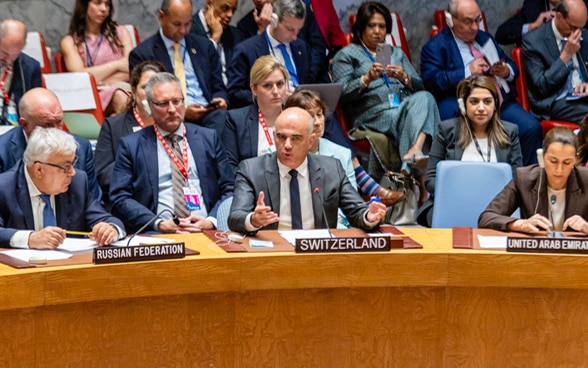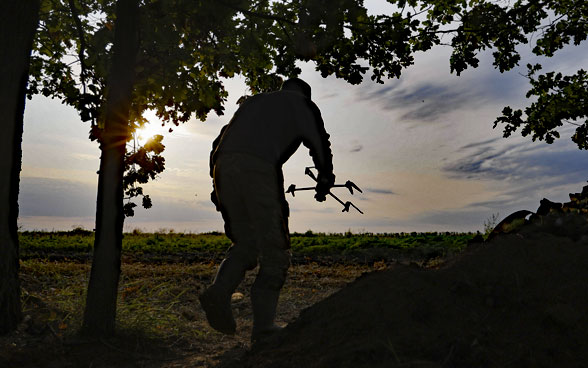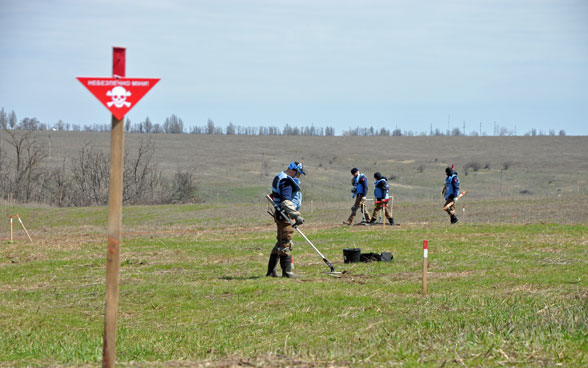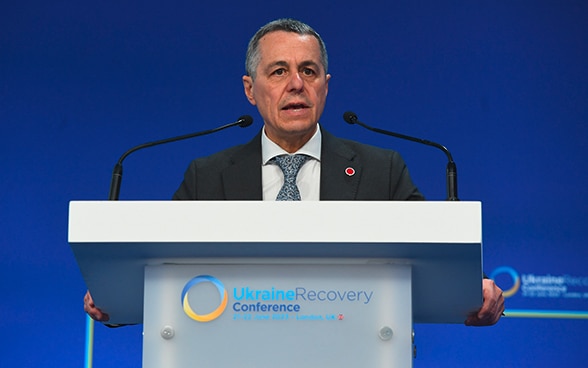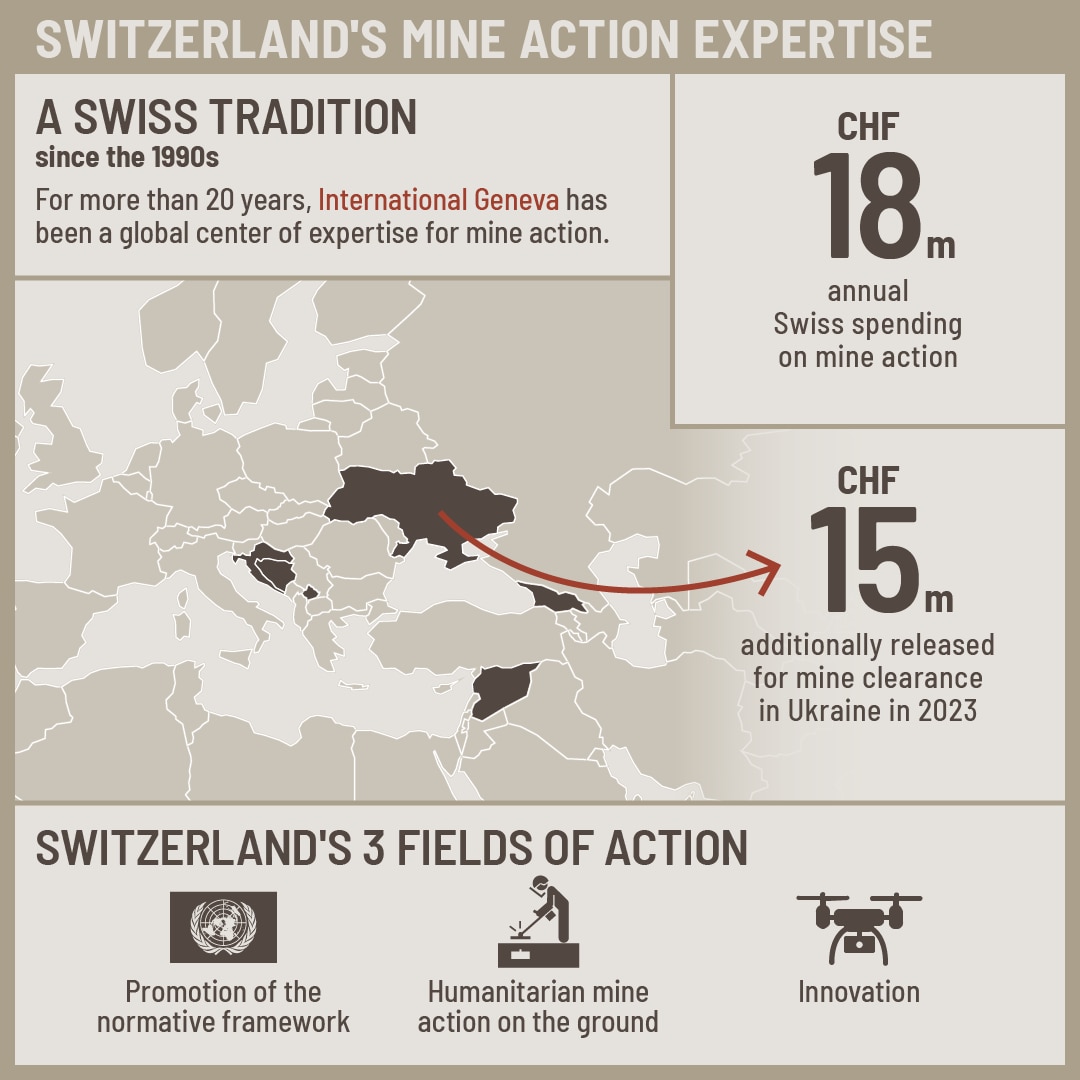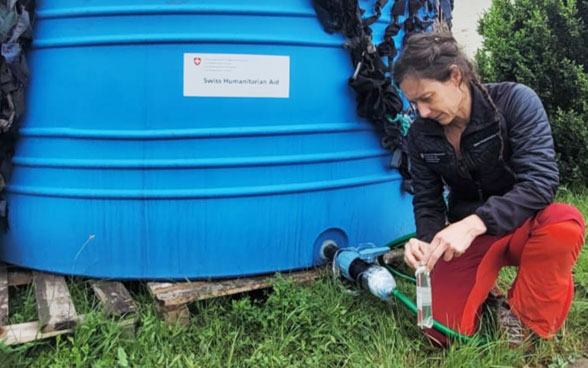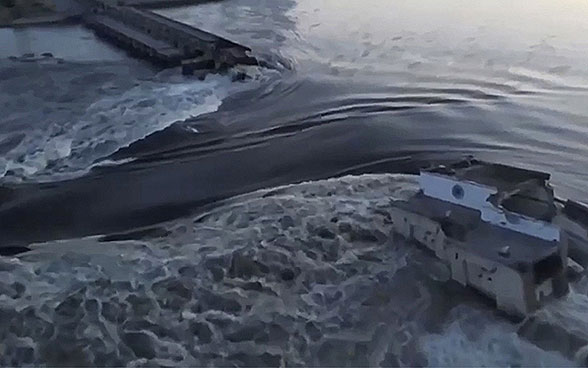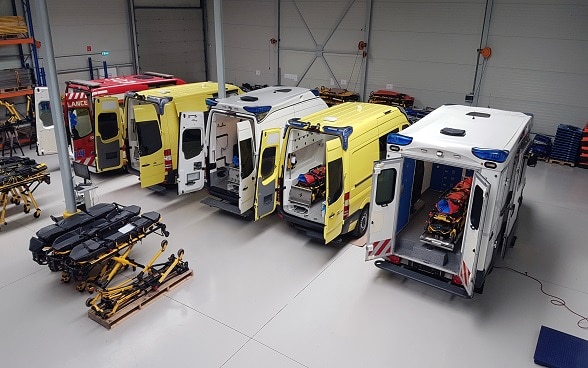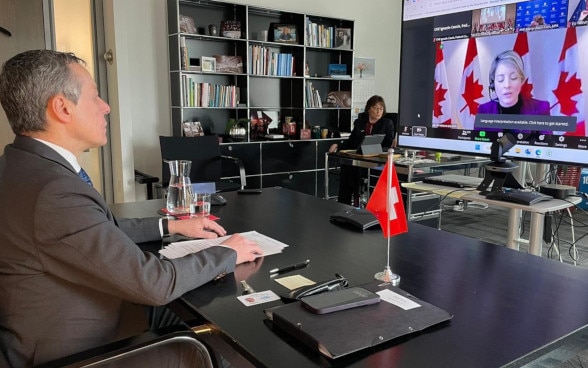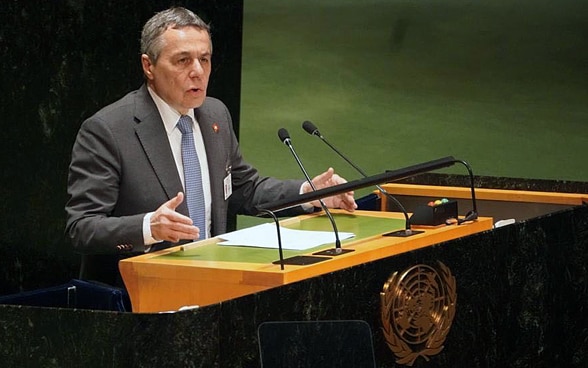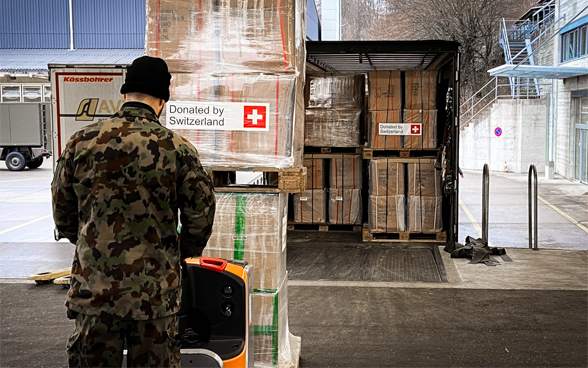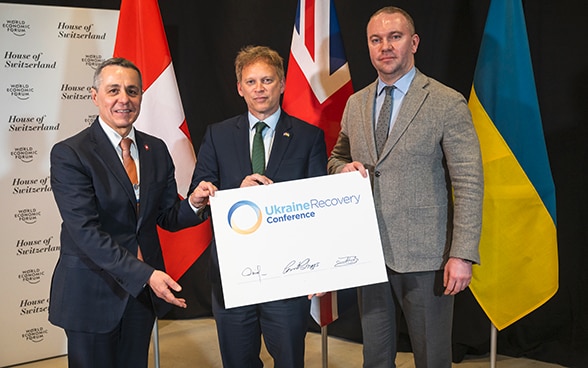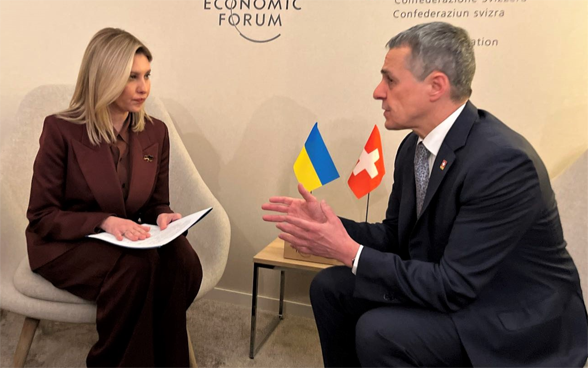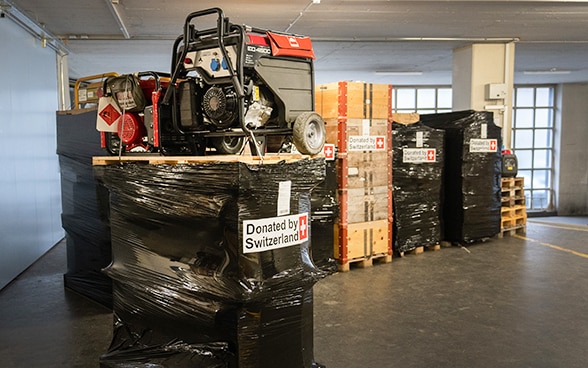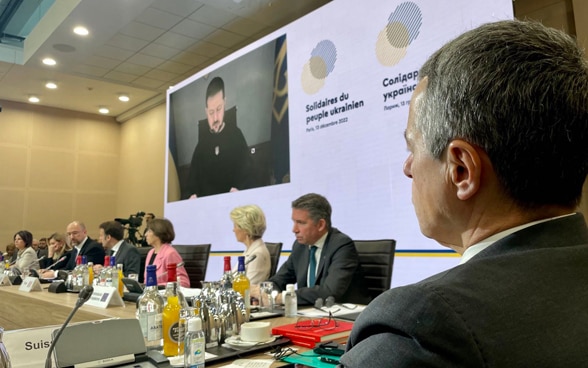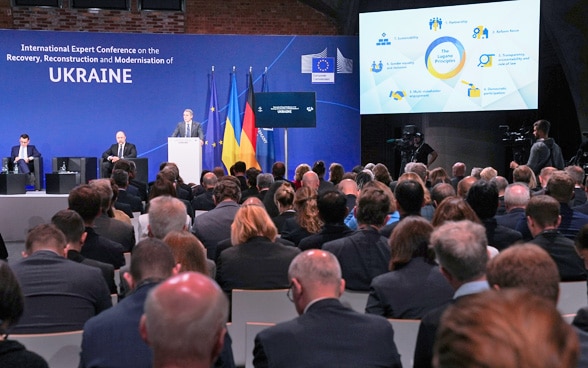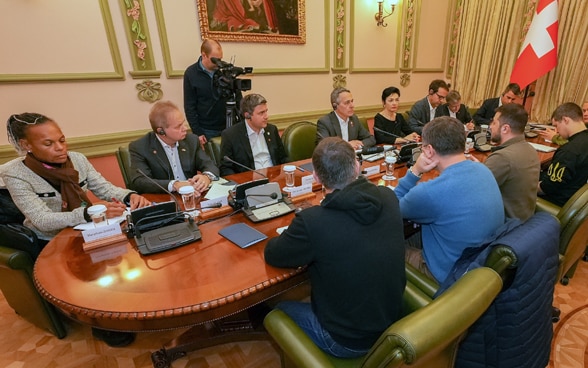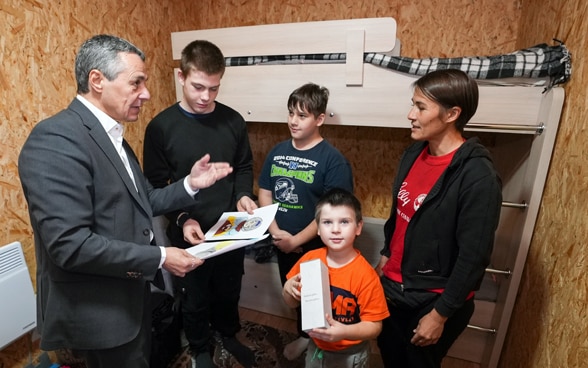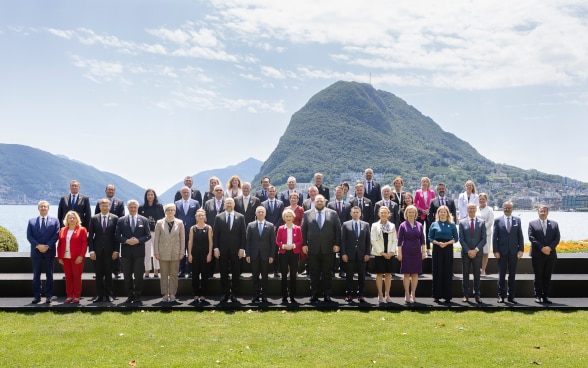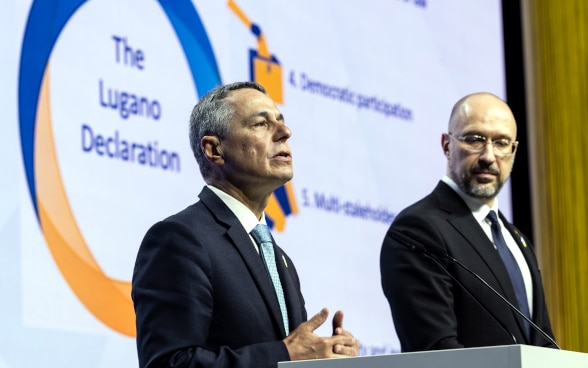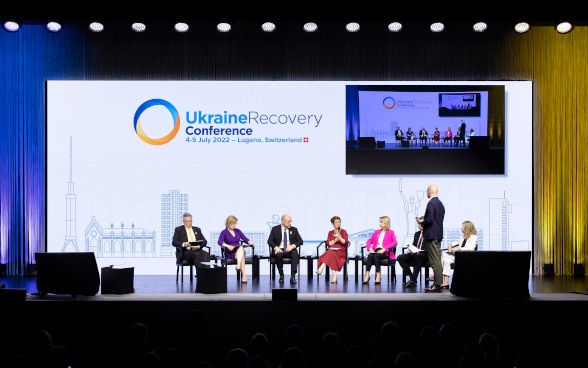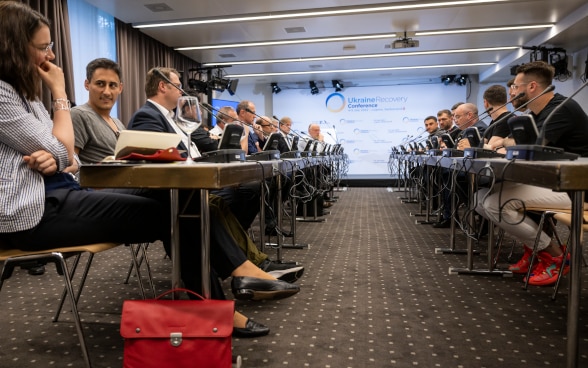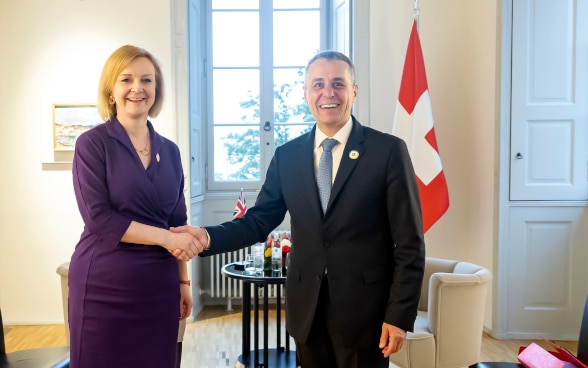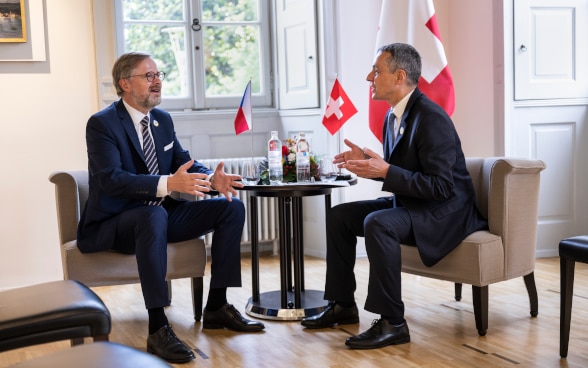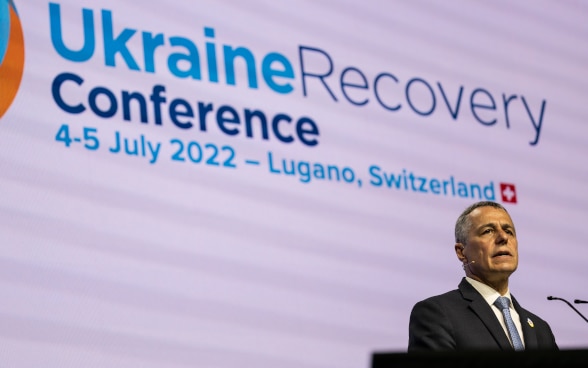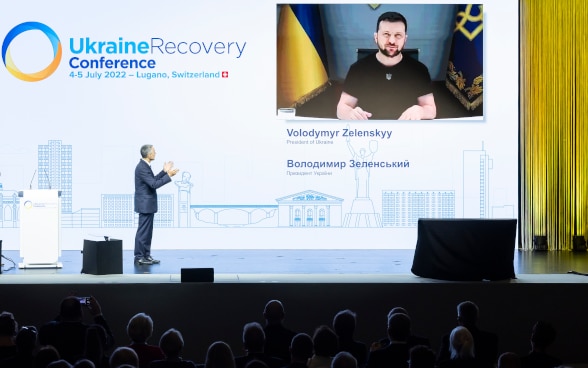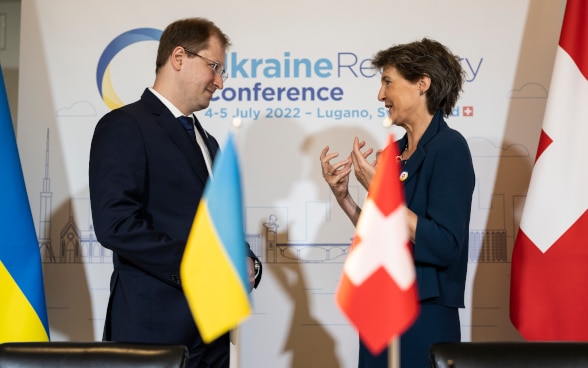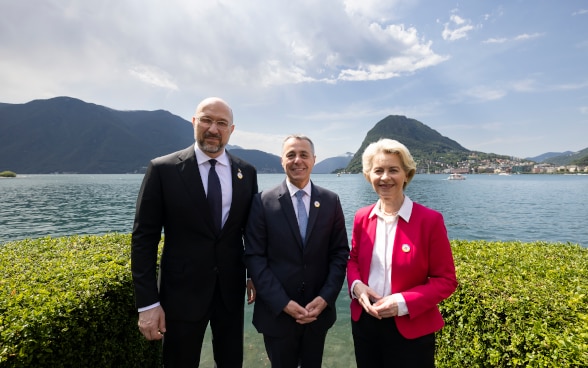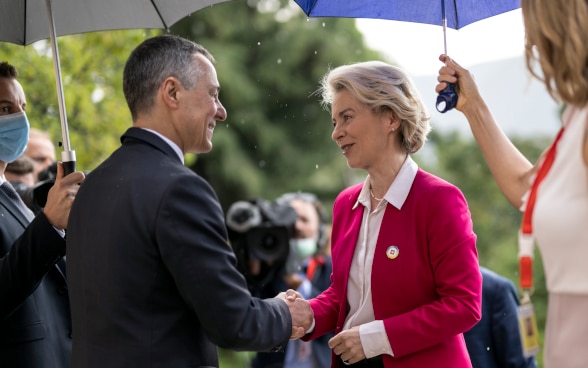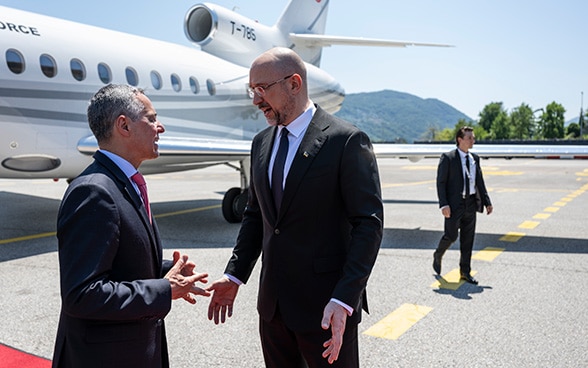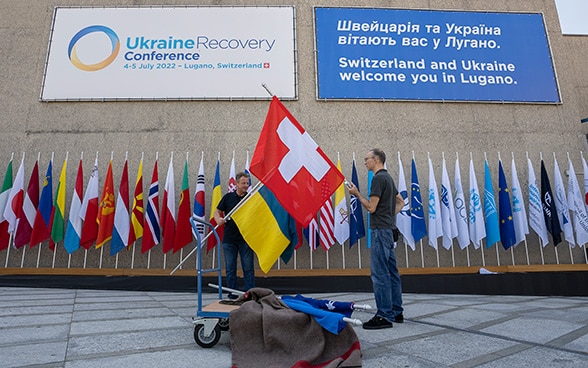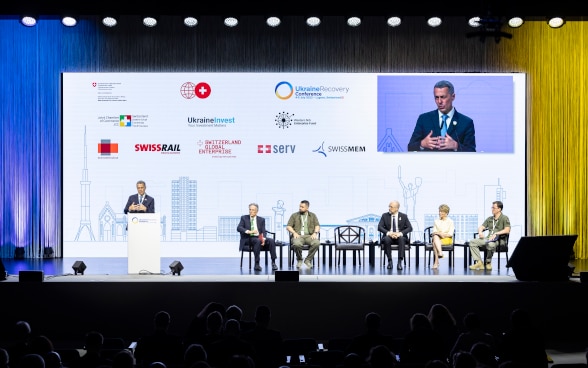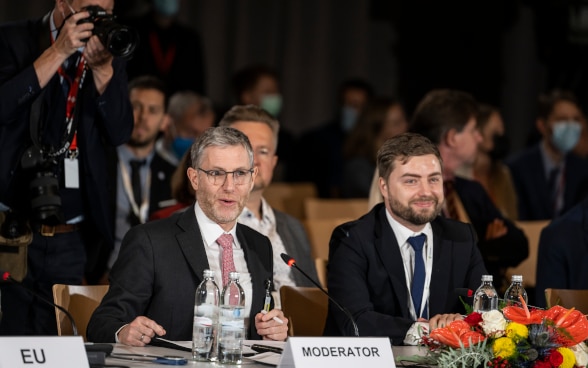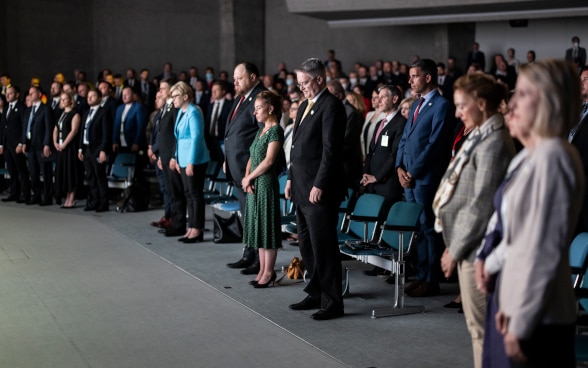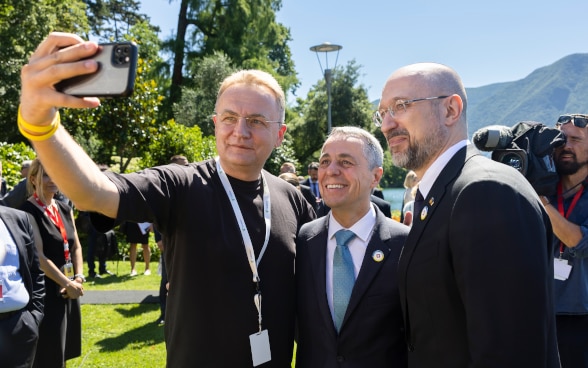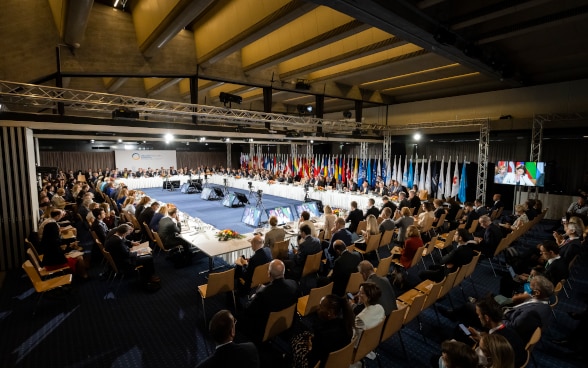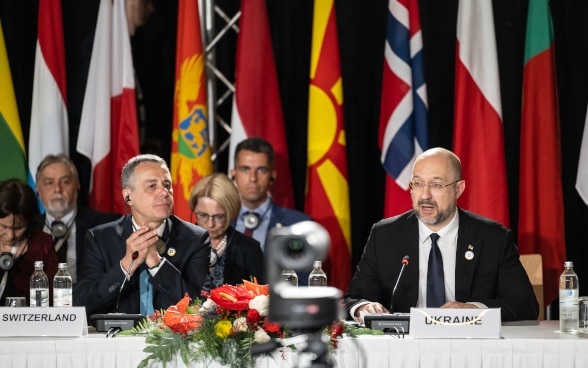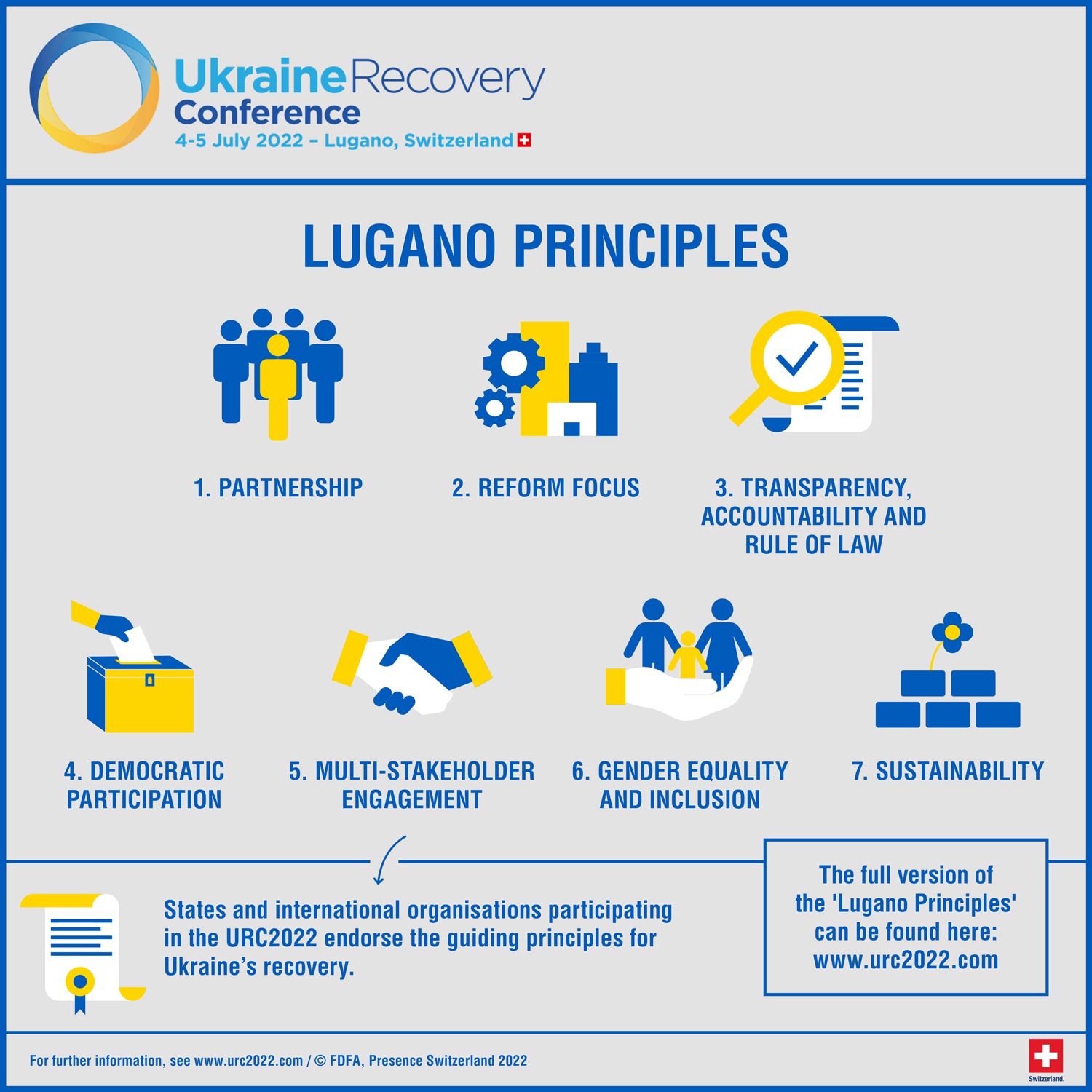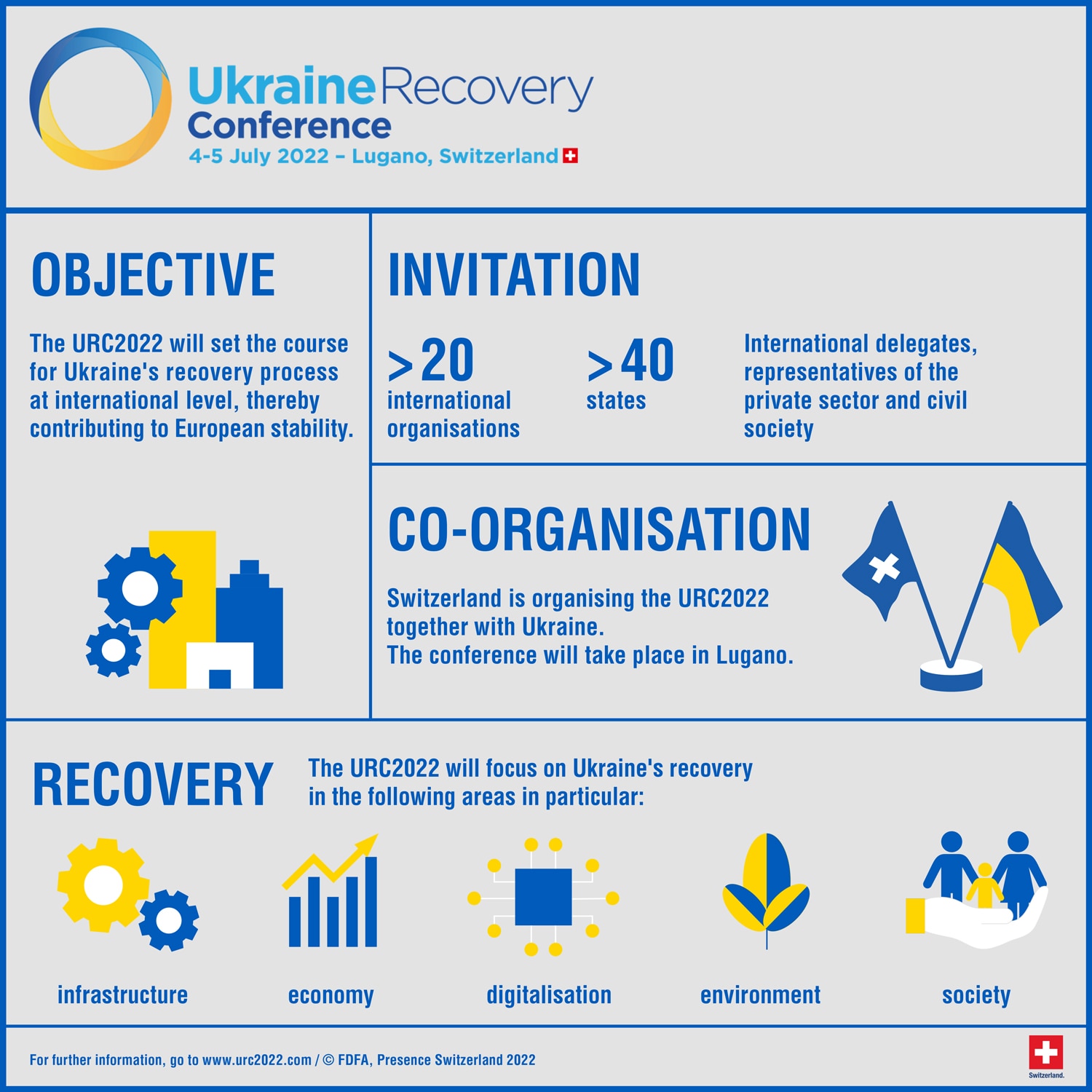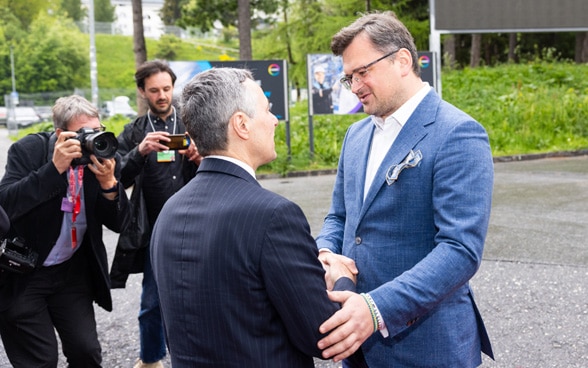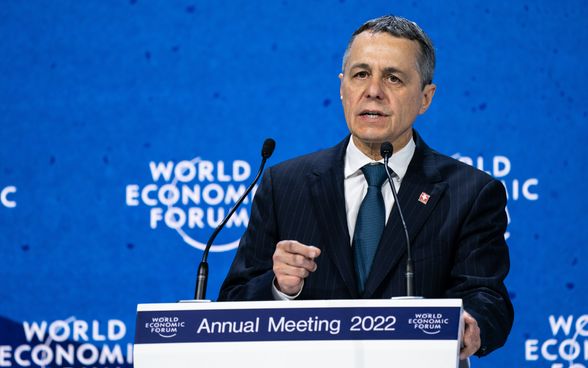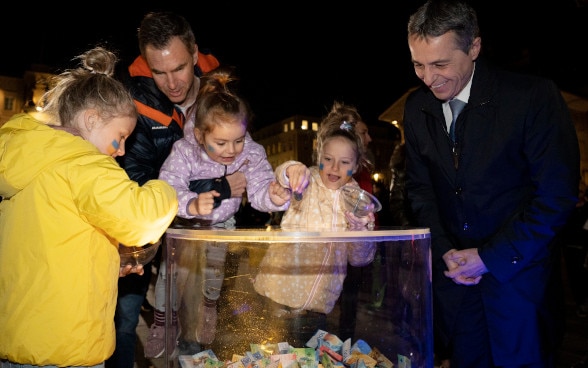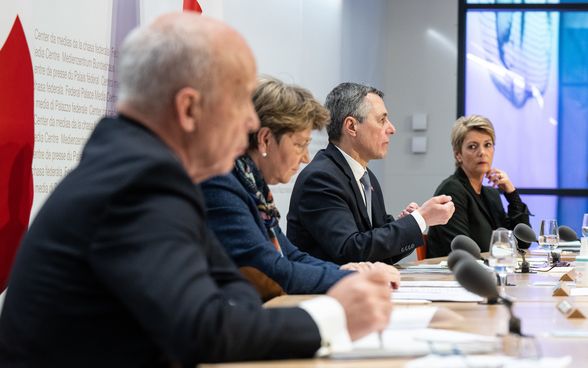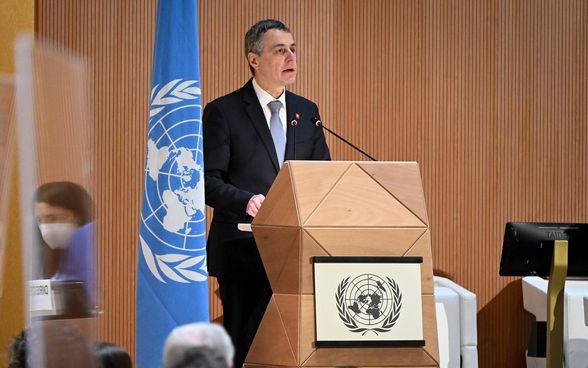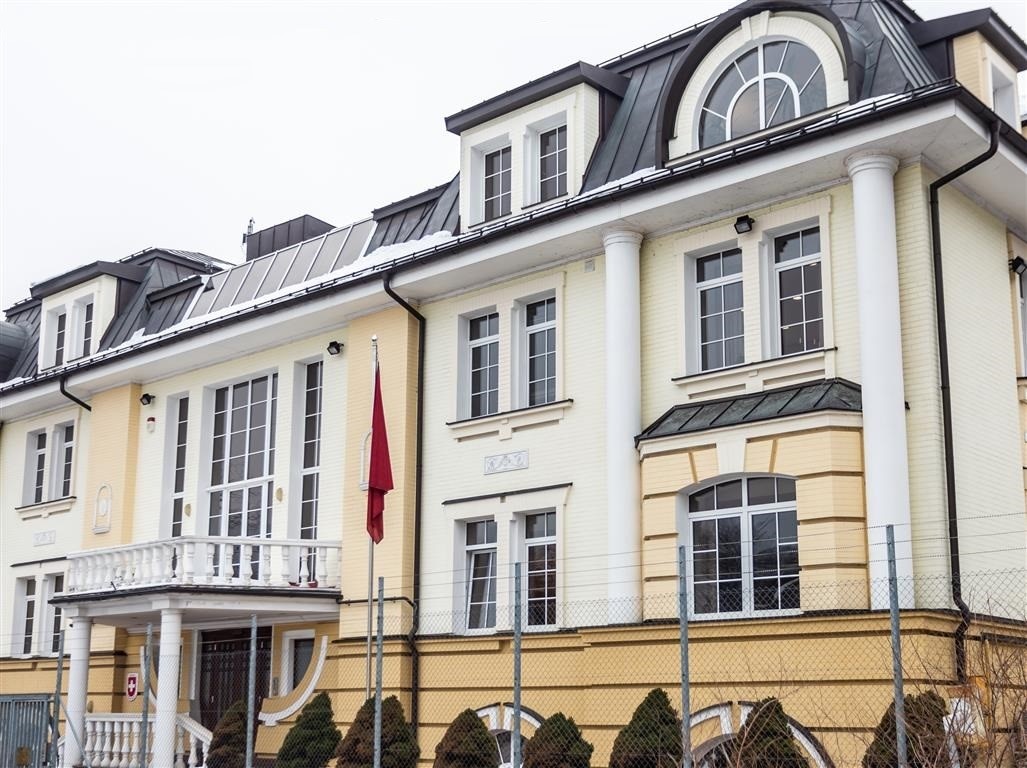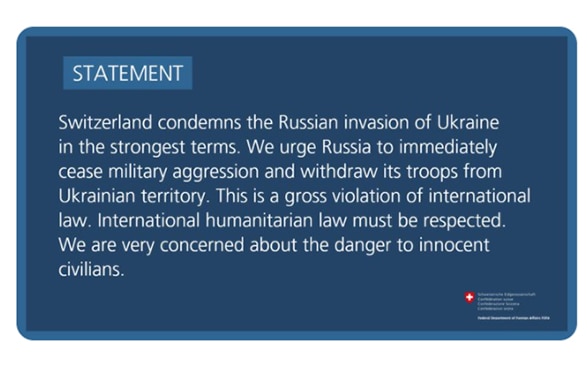As a result of Russia's military aggression, Ukraine has become one of the most heavily mined countries in the world. On 29 September 2023, the Federal Council approved a supplementary budget of CHF 100 million to contribute to mine clearance in civilian areas and the country's recovery. Funding is provided in equal parts by the Federal Department of Defence, Civil Protection and Sport and the Federal Department of Foreign Affairs (FDFA). This amount is making a significant contribution to strengthening Ukraine's national mine action programme.
Demining civilian areas in Kharkiv and Kherson provinces
Mines and unexploded ordnance regularly claim civilian lives and hamper Ukraine's reconstruction efforts. Given the scale of the contamination, an initial project with a budget of CHF 9.9 million was signed on 11 January 2024 between the FDFA and the Fondation suisse de déminage (FSD).
Over the coming year, this project will see the expansion and intensification of demining operations in Kharkiv province and the opening of a new operational base in late spring in Kherson province.
Thanks to this funding, the FSD is in a position to deploy the full range of demining activities to tackle the immediate threat to life posed by mined areas. In coordination with the Ukrainian authorities, the FSD is allocated areas suspected of being contaminated and begins by carrying out an investigation, using drones in particular, to determine the extent of the contamination.
In confirmed contaminated areas, the FSD deploys deminers, supported by more sophisticated tools such as detection dogs and demining machines, to remove the explosive devices. Alongside this delicate process, other FSD teams visit local residents to make them aware of the dangers and teach them about appropriate behaviours to adopt. It is already clear that with so much of the country contaminated, people will have to learn to live with this danger for years to come.
Recruitment and training of Ukrainian staff has already begun
Around 50 FSD staff are already working on the project, and several dozen Ukrainian nationals will be recruited and trained in January and February this year.
In total, up to 200 people will be deployed as part of the project, including two teams with mine detection dogs and a GCS machine to support manual demining. The equipment including machines, vehicles and detectors funded by Switzerland in an initial project with the FSD in 2023 will be reused, as will the personnel already trained. Activities on the ground are scheduled to start in March, as soon as the spring thaw begins in Ukraine.

